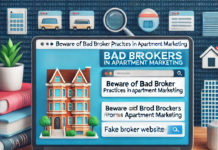More and more, the business world continues moving online. The trend towards online commerce is constantly growing. Then, the coronavirus impacted in-person commerce and strengthened the trend towards online shopping. And, from Amazon to Google and Facebook, major organizations are shifting their business models to take advantage of e-commerce. As a result, every company needs to review their online strategy and identify how various e-commerce platforms impact their business.
Not every company sells products directly online. But, increasingly, companies like Google offer more programs aimed directly at buying services online. For example, Google Local Service Ads allow home improvement companies to connect with relevant customers.
“Local Services ads help you connect with people who search on Google for the services you offer. Your ads will show up for customers in your area, and you only pay if a customer contacts you directly through the ad.”
Although Google Local Services are not technically an e-commerce platform, the program works in the same manner. Importantly, it differs from standard pay-per-click marketing because companies only pay for “converted” leads. Additionally, Google vets each underlying company, so they stand by the advertisements, which is a step not taken in traditional PPC marketing.
So, a traditional e-commerce platform like Shopify certainly does not make any sense for a plumber. However, as more actual shopping moves online, does an enhanced PPC program like Google Local make sense? Most likely!
Traditional E-Commerce Platforms
Typically, e-commerce platforms provide underlying software that provides the capability to build a website, list products and manage your operations. QuickSprout offers a general overview of the e-commerce platform world.
“Some are website builders, while others come in the form of plugins and shopping cart extensions. There are e-commerce solutions built specifically for certain CMS platforms and others that can be integrated with any existing website. Then there are e-commerce solutions for dropshipping, digital sales, B2B sales… anything you can think of.”
Naturally, in a convoluted world, there are plenty of options.
For example, perhaps the most well-known e-commerce platform is Shopify. Shopify truly offers something for everyone as an “all-in-one commerce platform to start, run, and grow a business.” Shopify started as an effort to sell surfboards and now helps everyone reduce the barriers to e-commerce.
Finally, Shopify isn’t the only reliable e-commerce platform. The following are very popular software platforms that allow individuals and companies of all sizes to build a successful firm.
-
Wix

Typically known as a “drop and drag” site builder, Wix also offers a very simple e-commerce platform. Wix ranks as one of the more popular platforms for new businesses that may explore e-commerce down the road because you can upgrade your account to activate this functionality. Additionally, Wix offers a straightforward store manager that makes it easy to manage inventory, track orders and handle customer service.
With over 500 templates, Wix likely has a solution that meets your needs. Plus, Wix limits costs by only taking fees from the payment processor (and not transactions). Starting at an affordable $23/month, Wix provides a great option for new companies. But, the platform lacks the resources for a fully customizable site.
Wix likely isn’t the right option for a mature retail business looking to upgrade their e-commerce platform, but might be the right decision for a small test and experiment with larger ambitions.
-
Squarespace

Another very common site builder that also offers an integrated e-commerce platform is Squarespace. Squarespace provides non-coders with a variety of modern templates that creates a very aesthetically pleasing site. Additionally, Squarespace includes many important benefits that help companies getting started. For example, Squarespace supports unlimited products (both physical and digital), subscriptions, multiple payment methods, gift cards and even mobile-optimized checkout solutions.
However, compared to other leading platforms, Squarespace does not offer an app store or other integrations (such as Shopify). Ultimately, the basics are included, but customization is not an option.
Starting at $18/month for business plans (which is required for the e-commerce solutions), Squarespace includes all of the necessary features that any new (and existing) business needs to jump into the e-commerce world. However, at the entry level plan, Squarespace also charges a transaction fee, along with some limited features. Therefore, the Basic Commerce plan at $26/month offers the true essentials for a starting e-commerce platform.
-
BigCommerce

BigCommerce stands out as another comprehensive e-commerce platform. For companies with large inventory and leverages e-commerce as their core business model, a platform like BigCommerce might be the best option. For example, BigCommerce retains a solid reputation around uptime, loading speed and security, among the main performance metrics. Additionally, the platform provides varying solutions for B2B stores, wholesalers and even WordPress users.
With standard plans starting at $29.95/month, BigCommerce offers a competitive pricing model that also automatically upgrades plans once sales eclipse certain tiers. For example, the standard plan supports 12-month sales up to $50,000, so if revenues are over that amount, the plan will upgrade to the next tier. For companies that do not require advanced features, but drive a lot of revenue, BigCommerce may not be the right option as your starting plan will be in the Pro tier. However, as BigCommerce integrates with WordPress, companies that leverage it as their e-commerce platform, but not core site, can experiment with e-commerce options.
-
WooCommerce

WooCommerce differs from some of the other leading e-commerce platforms because it isn’t a standalone solution. Instead, WooCommerce offers a WordPress plugin that turns any site into an e-commerce site. For companies that want to leverage WordPress for the versatility, but also intend to drive a lot of e-commerce sales, WooCommerce provides a solid option.
Additionally, WooCommerce is free to download and integrates into WordPress sites just like any other app. But, WooCommerce also supports extensions. This enables companies to customize their e-commerce platform with the necessary features for their specific business.
As a free plugin, WooCommerce charges for certain extensions, so the overall costs vary by your specific needs. Although WooCommerce offers the most customization, the core functionality of the site remains WordPress, which is a great CMS platform. As a result, e-commerce companies may want a different solution. However, WooCommerce may be an ideal solution for content-based sites that want to add some merchandise as an additional revenue driver.
Alternative E-Commerce Platforms
As commerce transitions online, the big technology companies are offering products that help companies take advantage of the massive audiences that visit these sites. For example, Google rolled out Local Service ads. Additionally, Google continues to develop and release tools that help traditional retailers as well.
From Rising Retail Categories to Grow My Store via Think with Google, all businesses now have more tools to determine the best products to sell based on changing trends.
- Rising Retail shows how consumer behavior changes (particularly during the unpredictable coronavirus pandemic). The tool provides an interactive approach to see rising retail categories based on Google Search queries. Plus, the interactive tool shows where they are growing and the related terms. As a result, companies can tweak their SEO strategy to showcase these products or work with their supply chain to sell products within these retail categories.
- Grow My Store helps assess a retail web site’s customer experience, along with providing tips on how to improve. The tool creates personalized reports through analyzing your site based on keywords. In addition, the tool looks at site speed, along with other measurable items that impact the customer experience.
Although these are not e-commerce platforms, they demonstrate the effort large technology companies, such as Google, are making to ensure that they become a vital component of your marketing and distribution strategy.
For instance, both Google and Facebook now feature more “shop” like services that do act as e-commerce platforms.
-
Google Shopping
Generally, people think of Google as a research engine. However, Google Shopping takes advantage of the research step and incorporates the shopping component. Google Shopping is a marketplace that connects merchants and consumers. Additionally as part of Google Shopping, consumers can search and find products via a direct link or more commonly click on the “Shopping” tab listed as a search result option.
As a result of focusing on customer intent, Google Shopping yields terrific conversion rates.
Why?
First, Shopping feeds provide a visual aspect to a traditionally text-based search. Plus, and perhaps more impactful, the software allows merchants to display results multiple times in the same SERP.
Additionally, shopping-related searches appear within the Google Shopping results. Plus, these products show within organic results and text only PPC ads (if merchants leverage paid search).
Finally, although Google Shopping may not seem like an e-commerce platform per se, the software offers paid and free product listings, so it definitely acts as a sales engine.
-
Facebook Shops
Recently, Facebook announced Facebook Shops, which mirrors Google Shopping as another avenue for merchants to sell products online. Whether it is viewed as a platform or marketplace, the product allows merchants to leverage their organic social media efforts with a new sales engine.
“Facebook Shops is an online shopping marketplace that enables businesses to list products on various Facebook owned properties (including Facebook pages, Instagram profiles, Instagram Stories and even ads). Importantly, Facebook Shops will launch as a free product, which reduces any risks small businesses face while testing the product. In time, Facebook plans to enable commerce via chat (in which businesses can tag products and consumers can click to purchase the product).”
So, how does Facebook Shops work?
- Allows companies to choose and feature certain products.
- Customize the look and feel of the Facebook Shops tab, including images and accent colors.
- Facebook Shops available to consumers via their Facebook business page, Instagram profile, Instagram Stories and Ads.
- Leverage Facebook messaging apps to answer questions and offer customer support.
In the very competitive world of e-commerce, Facebook Shops differentiates from the crowd by owning the consumer journey. For example, small businesses that currently manage and maintain a successful social media channel can easily integrate Facebook Shops into their messaging. As a result, consumer adoption should follow. Ultimately, time will tell how consumers adopt the shopping feature. But, there is limited risk to try the product particularly as Facebook attempts to support small businesses.
-
Amazon Storefronts
Everyone knows Amazon as the “everything store” but the platform also includes a Storefronts that aim at helping small and mid-sized businesses in the United States. Initially launched in 2018, Amazon Storefronts offers an e-commerce platform with niches in over 30 departments. Additionally, the home page features “Storefront of the Week” and “Meet the Business Owner” profiles. Although these bells and whistles help showcase individual businesses and entrepreneurs, working with Amazon presents a fine line.
As The Verge notes, Amazon as a whole makes running a small retail business much more difficult.
“Some of the smaller companies that will receive high-profile attention from Amazon are sure to be glad for the extra PR and the dedicated section. But it’s hard to shake the air of “Gee whiz, aren’t small mom-and-pop US-based businesses great? We’re a relatable company that helps people run their companies better, not one that is slowly killing off smaller retail stores that can’t possibly compete with Amazon’s superior and cheaper supply chain management.”
However, businesses must use all available platforms to compete and survive. Although Amazon increases local competition to a global market, taking advantage of the platform and larger audience may be a viable option. In a connected world, certain small businesses may find they have unique products that simply need a larger market. Now, a local clothing shop isn’t defined by the surrounding community. Of course, this is a double edged sword as they are now potentially competing with every local merchant.
Determining the Right Mix of E-Commerce Platforms
Not every business needs to work with every e-commerce platform. But, every business needs to evaluate reputable platforms and determine if it works within their operations. For example, any merchant that sells physical goods should have a site that includes purchasing options. One of the leading traditional e-commerce platforms should include the specifics that meet the operations of your business. But, the right one likely depends on your inventory and other operational concerns. Conversely, a service related business likely does not require an e-commerce heavy site. But, they may find the ease of use of a traditional drop and drag site builder within their budget and covers their needs. However, service businesses should take advantage of alternative e-commerce platforms, such as Google Local Ads and other similar options.
Finally, regardless of your e-commerce strategy, as more and more online shopping occurs, every business must have a strategy. From traditional SEO and PPC to sharing authentic messages on social media, finding your next customer online will be the key to sustained success.





